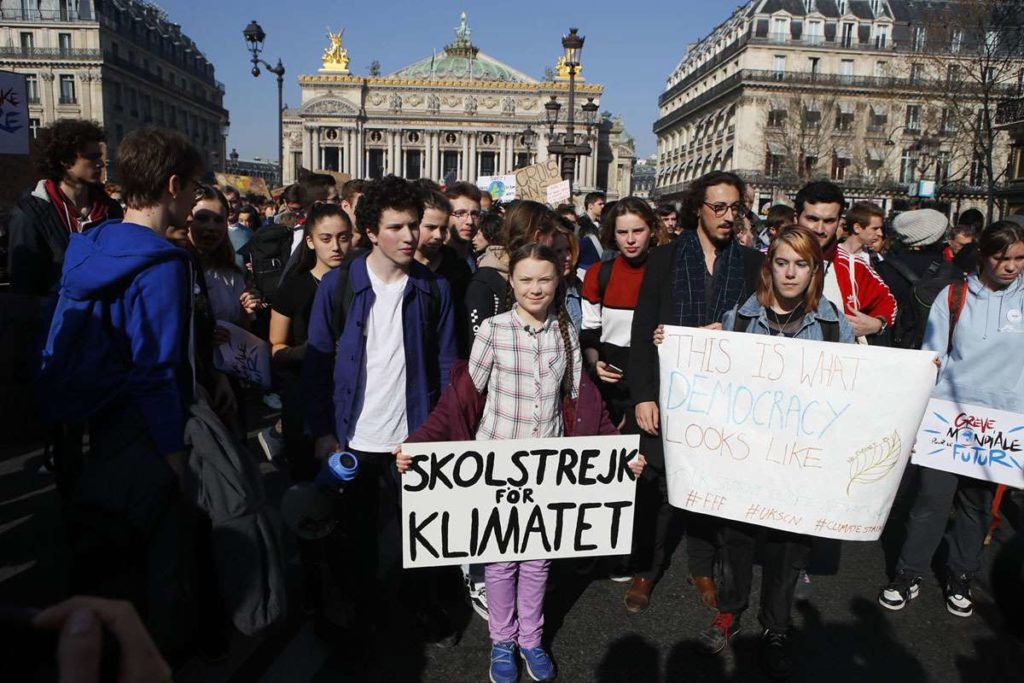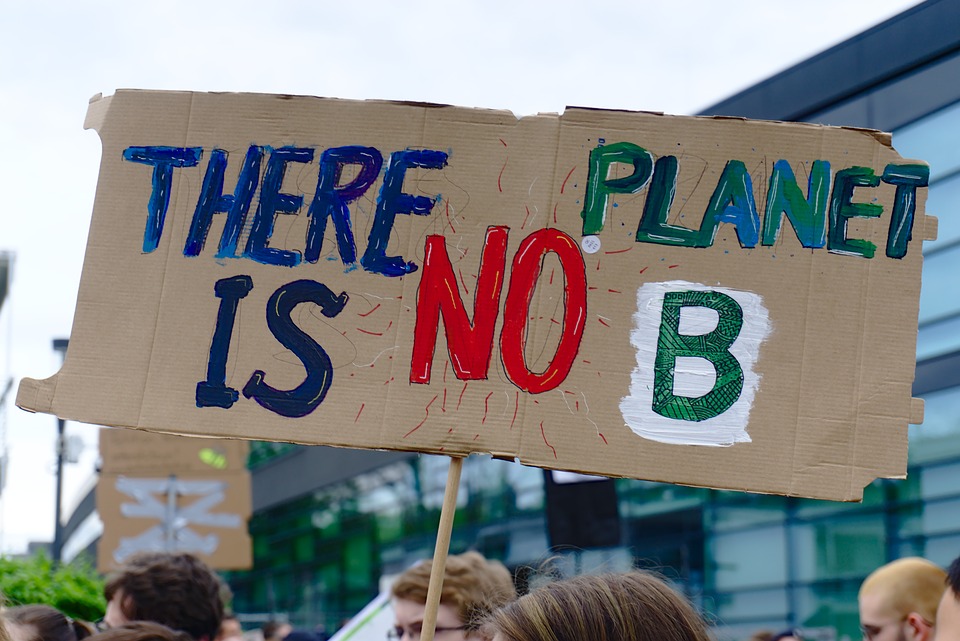Climate change has never been more relevant – global warming is impacting everything we do, from the food we eat and the transport we use to the homes we live in, our family and friends, and the air we breathe.
With the media finally starting to focus more on how serious this issue is, there’s an increasing number of people becoming invested in working to save our planet and help the environment. However, there are still many people who are unaware of the dangers or who are choosing to ignore the facts – yes Mr Trumo we are talking about you.
The effects of global warming will become irreversible by 2025 so now is the time for zero tolerance for ignorance! It’s important to educate others and to spread the word, not only about how essential it is to do your part but also to show people how easy it is to make some changes. But what’s the best way of getting this message across? Read on to find out.
Educate Yourself
Before you begin to reach out to people, you need to make sure you know what you’re talking about. Star with some internet research but be careful to choose your sources well. There are a lot of websites out there and many of them are inaccurate and dishonest. Do your learning on well known and reputable websites like the World Banks climate knowledge portal, the UN, theworldcounts.com, Defra and the Office of National Statistics. You can also read environmental articles in the quality press; BBC, the Times and The Independent. Avoid the Daily Mail as their articles are often not based on facts. You can also subscribe (electronically to save paper!) to some specialist magazines like The Ecologist, Nature, Scientific American or Nature Conservancy.
Take A Course
If you don’t have much time and/or you don’t already know much about the environment it can be very hard to find out what you need to know but manging your own reading. Rather than try to find out what you need to know from all these sources it can be worth taking a carefully designed course. The website Superprof, for instance, can help you get tutoring on environmental studies and other relevant courses, which will not only widen your knowledge of the environment and everything related, but also give you some credibility, meaning people are more likely to listen to you. If you are interested in learning more, visit superprof.co.uk and browse through the selection of environmental studies teachers that they have listed.
Influencing People – The Psychology Behind It
The other thing that’s important to know before communicating with people is the psychology behind social change. There are three key factors you need to be aware of: flexibility, consistency and commitment.
Flexibility means being able to compromise on your views. Remember – although you may be fully committed to the cause, other people may not be as interested, and the amount of work required can put people off. At the end of the day, every little bit helps, and if everybody did a little bit, the change would be drastic. You don’t need to radically change someone’s perspective to make the exchange a success. Focus on a small issue that they can’t really disagree with – plastic waste or deforestation – and aim to get them to agree to a small change like starting to recycle or using a reusable water bottle.
Although you want to be flexible, you want to make sure you are still delivering the same message. Make sure they know it’s important to save the environment, the consequences of not doing so are huge, and it only takes a little bit from one person to make a big change for everybody. Keeping key slogans and messages like this mean they are repeatedly put through to your audience, and so are more likely to be taken in and accepted.
Finally, commitment is showing your dedication to the cause. You can’t change people by expecting them to do as you say whilst not making any changes to your own lifestyle and choices. Think about all those celebs flying their private jets all over the world to attend an environmental conference!!! Not exactly inspiring anyone to change their habits, is it?
Protests
Protests are a great way to start getting involved in the fight for the environment. Usually arranged by a big group, all that is required is you come along and join in. Not only do they give you a chance to voice your opinion and use the crowd to make yourself heard, but they also give you the opportunity to meet like-minded people, and maybe start up your own groups as well as brainstorm new ideas.
Protests can give you some opportunities to have fun whilst also putting yourself out in the open. Since there are so many going on, and it
is not much you need to do yourself in terms of organisation, it can be a relaxed environment for you to ease yourself into committing to the climate change movement.
Strikes
Strikes are a slightly more extreme way to make yourself heard, but they can be very effective. You may have heard of tree huggers; people who quite literally tied themselves to trees in order to make a statement. Now, you don’t have to go quite this far – in the modern day, people such as Greta
Thunberg have influenced children around the world to partake in strikes from going to school. Others have contributed too, with things like hunger strikes and labour strikes. Although these can be inconvenient at times, it’s a very quick way to attract people’s attention and get them listening to you. Making such a sacrifice for your cause must mean it’s worth listening to, after all.

Fundraising
Fundraising is a widespread way of raising money for causes and charities alike, and there are many ways to do it. Whether your forte is baking, running, or getting pied in the face, there’s something for everyone! Even something as simple as a sponsored walk can be worthwhile – don’t be afraid to ask family, friends, co-workers, neighbours, even strangers on the street if you’re feeling bold, and explain to them why you’re raising money. Even if you don’t end up getting a donation, most people will be happy to listen to you, giving you the chance to raise awareness. Any donations you do get can be donated to a charity dedicated on saving the planet – charities like Rainforest Alliance or Greenpeace are brilliant to support.
Get Your Voice Heard
Getting your voice heard is easy in the modern age – if you’re a budding writer, putting together an article for a website or even creating your own blog can be a good way to reach lots of people all over the world with your opinion. Creating your own blog is easy to do and it gives you a lot of control over how you communicate with people, as you can not only write articles but perhaps include some artistic contributions, videos, interviews, whatever you see fit to attract people.
Once you start sharing on social media, it’s easy to get people’s attention. If you’re more of a practical person, you may go one step further and volunteer to give talks – places like schools are a brilliant way to make a difference as you can influence and inspire the next generation, the generation that will eventually be in charge. You will need to very credible if you are going to be allowed into schools so some form of qualification or membership of a reputable environmental association would be needed.
You can also do talks in places such as conventions, fairs, fundraising events, local musical performances and even on the street – use your creativity and charm to make people stop and listen to you, and you’re sure to get them interested and involved.
Hopefully we’ve given you a bit of inspiration into your journey. With our help, you’ll be able to show people just how easy it is to ensure our environment gets the love it deserves. Thank you for wanting to make the world a better place, and together we can help to save our planet.

Comments
One response to “How to Spread the Word About Climate Change”
Education about climate change and how our decisions affect the planet is a big factor. The more we know and understand the more we can spread the word and educate others, for them to do the same. I enjoyed the tips under influencing people, it was a great way to make sure people are consistent in their approach.
Blogs are also great for basic tips on green living and personal experiences, it provides a foundation for others to learn easily.